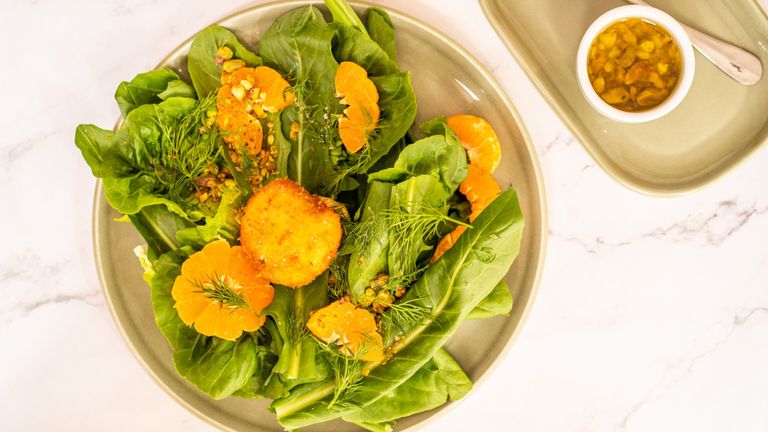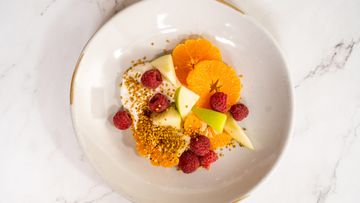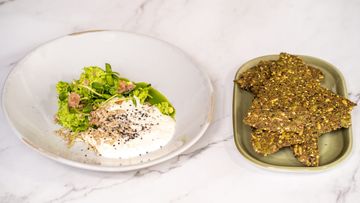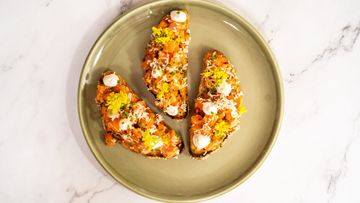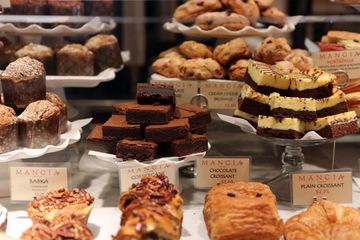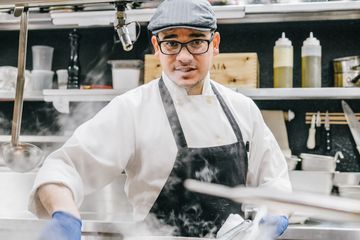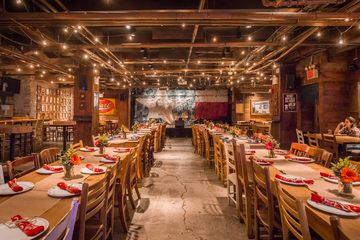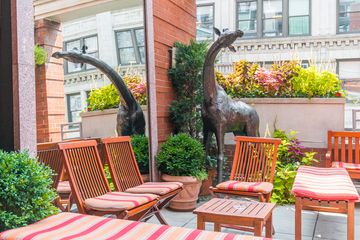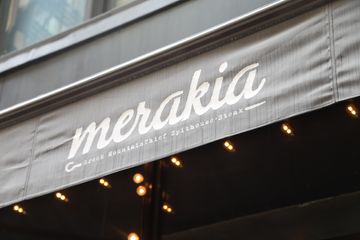Fabio Camardi - the charming owner both of this restaurant and Mercato on West 39th Street - announced as we walked inside his brand new restaurant that it had taken two years to complete his renovation. He went on to say that he had chosen the location because he is fond of the architecture in the NoMad neighborhood – “architecture is my hobby, ” he told me. “I built this place myself, ” he went on to say, showing me how he had added the beams in the ceiling and created the new floor made of reclaimed red and white oak. When I commented on the furniture filling the restaurant, including tables from a library upstate and an old butcher’s block, Fabio informed me that he has been collecting antiques for years. While continuing to chat about the renovation, Fabio explained that it was slow going due to the fact that the building dates back to 1865 and has achieved landmark status. Therefore, he had to wait for official permits to do any work. When the restaurant opened in April 2016, Fabio was delighted by how friendly the neighborhood was. “They were immediately nice, ” he said. The highlight of visiting Ulivo, aside from Fabio, was seeing the “Pasta Lab. ” Unlike its sister restaurant, Ulivo focuses on pasta, with fifteen different dishes on the menu. Thirteen of those are made with help from an enormous machine that sits in the basement. “It’s the most advanced machine we have in Italy, ” Fabio proudly told me. He turned the machine on and I was able to watch as it created large tubes of rigatoni and then long strings of spaghetti, using a different setting. “The more pasta you make, the better it gets, ” Fabio informed me. Beyond the pasta lab, there was an event space that seats forty, complete with a full bar and a Faema espresso machine from 1949. At the end of the room, I spotted a special door with a porthole that opens onto the beer cooler, and, in the very back, built out of the old coal shaft, I discovered a cave where the liquor is kept. Upstairs, there is a wine cellar encased in glass with a wooden ladder next to the kitchen. I was intrigued by the row of twenty different olive oils sitting on the counter in easy reach of the chefs. Fabio makes sure that each brand is made and bottled in Italy. When I asked which olive oil was the best, he said he could not answer the question. “It’s based on your taste, like wine. ” In the kitchen itself, different meats were hanging across from a wood fire oven on the opposite wall. Along with pasta, Emanuel “Mano” Concas, partner and the chef (whom Fabio refers to as “The George Clooney of Sardinia), cooks “dal forno a legna” in the wood-fire oven. Each plate is created using a cast iron pan placed directly into the oven. Some of the more popular non-pasta dishes are the tail-in branzino and the dry-aged steak. Being familiar with the themes of good Italian cooking, I was not surprised when Fabio told me, “Everything is fresh. ” This is especially true for the restaurant’s “fritture, ” little dishes. These items include fresh octopus, cold cuts, burrata, and fried meatballs with sea salt, a dish that is particularly popular in Sardinia, where the chef is from. There are also two flatbreads on the menu, but Fabio was adamant that Ulivo is not a pizza restaurant. He simply chose the two that they do "best" at Mercato: The San Daniele with prosciutto and arugula and the Regina Margherita. Fabio shared the myth behind the latter: The story goes that Italian chefs decided to put something special before the Queen. Up until that time, pizzas just had sauce, and so they added buffalo mozzarella to make it royal, hence the “Regina. ”If there is a certain nonchalance about Fabio and his attitude toward owning two restaurants in New York, it is probably because he has a lot of experience in this world – he even went to culinary school, which is rare amongst Italians, who often just rest on the fact that they were born into a culture that puts a lot of emphasis on high-quality food. Fabio shared that he owns four restaurants in Italy, which his forty-four cousins help to run. He went on to tell me that he came to the United States in 2004 because he “didn’t like Berlusconi” (the unpopular former Prime Minister of Italy) and that he began his career in New York as a bartender (the cocktail list at Ulivo is his own creation). In addition, there are four local beers on tap, including Smart Beer, which Fabio says is the "first organic beer made in New York. " There is also a substantial bourbon list – “It’s what people want. ”I particularly loved the story of how he met his wife, who is originally from Korea: they were both attending English school. Several years later, they have two adorable children and “She’s my bookkeeper, ” he said with a smile. His wife is also responsible for the beautiful candles and dried flowers throughout the space. Fabio is playing with the idea of opening an Italian restaurant in Korea. He told me that there is no fresh olive oil available in eastern Asia, but that China had recently planted one million olive trees to try to remedy the situation. Olive oil is absolutely essential to Italian cooking, which is why Fabio named his restaurant “Ulivo. ” He stated, “There is no Italian cuisine without olive oil. ”Fabio’s vision for Ulivo is a perfect blend of traditional and modern. Though he uses traditional Italian culinary methods and pasta recipes, he embraces new technology - such as his pasta machine - and trends. When I asked what was next for Fabio, he responded, “I’m full of ideas – there’s a lot of stuff that I want to try and eat. I love to eat! ”
